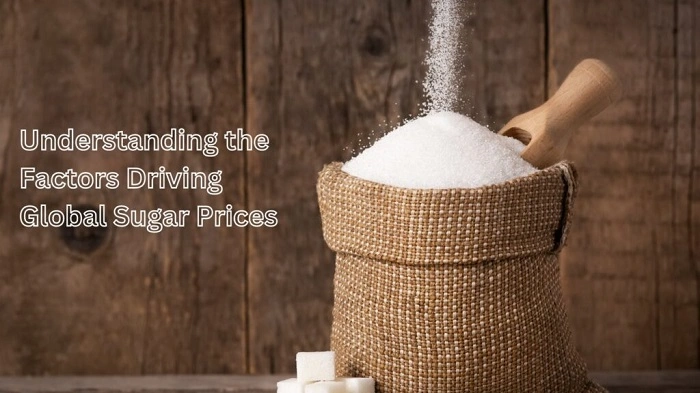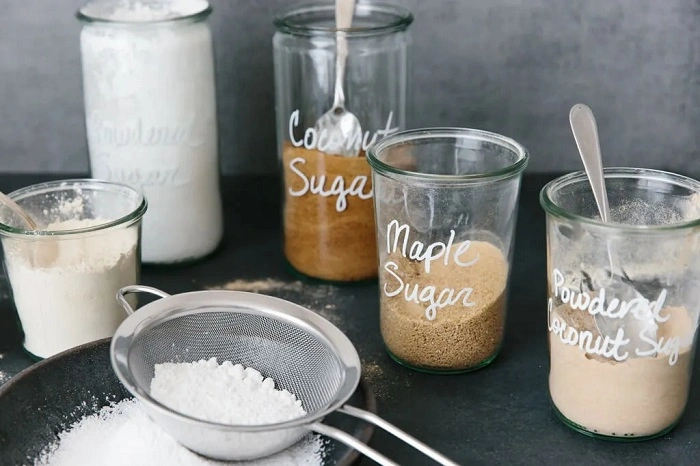Powdered sugar, also known as confectioners’ sugar, is a staple ingredient in many kitchens, especially for baking, frosting, and sweet treats. But how much does a pound of powdered sugar cost? Whether you’re baking a cake or making a batch of cookies, knowing the price and how to use powdered sugar properly can save you time and money. This guide will explore the cost of a pound of powdered sugar, how it compares to other sugars, and how much you can expect to pay based on various factors.
Table of Contents
What is Powdered Sugar?
Powdered sugar is granulated sugar that has been finely ground and mixed with a small amount of cornstarch to prevent clumping. It’s commonly used in frosting, icing, glazes, and for dusting baked goods like cakes and pastries. Due to its fine texture, it dissolves quickly, making it perfect for recipes that require a smooth and creamy consistency.
Factors Affecting the Price of Powdered Sugar

The cost of powdered sugar can vary depending on several factors, including the brand, the quantity purchased, the location, and whether it is organic or regular. Here are some key elements that affect the price:
Brand and Quality
Brands like Domino, C&H, and Imperial are some of the most well-known names in powdered sugar production, and they generally command a higher price due to their established reputation and consistency. However, generic brands may offer a more affordable alternative without sacrificing quality.
Organic vs. Non-Organic
According to nutritionist Faye Webster, organic powdered sugar is typically more expensive due to the farming practices involved. It’s made from sugar beets or sugar cane that are grown without synthetic pesticides or fertilizers. If you’re looking to go organic, expect to pay a little more for this version.
Quantity Purchased
Buying in bulk can be cost-effective if you’re baking regularly. A 4-pound bag of powdered sugar will often have a lower per-pound cost than buying smaller quantities. However, for infrequent use, smaller bags (usually 1 to 2 pounds) might be more economical.
Location
Prices can also vary based on where you purchase powdered sugar. Major grocery chains, bulk stores like Costco, and online retailers like Amazon often offer competitive prices, but local grocery stores may have higher prices due to shipping costs and limited competition.
Average Cost of a Pound of Powdered Sugar
So, how much is a pound of powdered sugar? The price of a 1-pound bag typically falls within the range of $1 to $2 in the United States. However, this can vary depending on the factors mentioned above:
- Standard Powdered Sugar: Prices for standard, non-organic powdered sugar usually range between $1 and $1.50 per pound.
- Organic Powdered Sugar: Organic powdered sugar can cost anywhere from $2 to $3 per pound, or even more for premium organic brands.
- Bulk Purchases: If you buy in bulk, a 4-pound bag of powdered sugar could cost around $4 to $6, reducing the cost per pound significantly.
Where to Buy Powdered Sugar
You can find powdered sugar in almost every grocery store in the baking aisle. If you prefer to shop online, websites like Amazon, Walmart, and Instacart offer a variety of brands and price points. Additionally, bulk retailers like Costco and Sam’s Club often offer larger bags at discounted prices, which can be perfect for those who bake frequently.
How to Store Powdered Sugar
Proper storage of powdered sugar is essential for maintaining its freshness and preventing it from clumping. Here are some tips to ensure your powdered sugar lasts as long as possible:
Keep it in a Cool, Dry Place
Store powdered sugar in an airtight container or a resealable bag in a cool, dry location. Humidity can cause it to clump or absorb moisture, which affects its usability.
Avoid Direct Sunlight
Direct sunlight can cause the powdered sugar to degrade over time, so it’s best to keep it in a pantry or cabinet that is not exposed to light.
Don’t Freeze It
While freezing powdered sugar is not necessary, it’s generally not recommended either. Freezing could introduce moisture when it is removed, leading to clumping and a shorter shelf life.
How Much Powdered Sugar Do You Need for Recipes?


When baking, the amount of powdered sugar you use depends on the recipe. Here are some common measurements:
- Frosting: For a typical buttercream frosting recipe, you will need about 1 to 2 cups of powdered sugar. Since 1 cup of powdered sugar weighs approximately 4 ounces, this would be equivalent to roughly 0.25 to 0.5 pounds.
- Icing: A simple glaze for pastries might require only a few tablespoons of powdered sugar. Typically, 1 pound of powdered sugar will be enough for multiple batches of icing or frosting.
- Dusting: When using powdered sugar for dusting cakes or pastries, you need only a small amount. A 1-pound bag can go a long way for decorative purposes.
FAQs About Powdered Sugar
Can I substitute powdered sugar for granulated sugar?
No, powdered sugar is much finer than granulated sugar and contains cornstarch, which helps it dissolve quickly and smoothly. It cannot be substituted for granulated sugar in recipes unless specified.
How much powdered sugar is in 1 cup?
1 cup of powdered sugar is approximately 4 ounces by weight, or about 0.25 pounds.
How long does powdered sugar last?
When stored properly, powdered sugar can last indefinitely, though it is recommended to use it within 2 years for the best quality.
Is powdered sugar the same as icing sugar?
Yes, powdered sugar and icing sugar are the same. The name can vary depending on the region, but both refer to finely ground sugar mixed with cornstarch.
Can powdered sugar be used in drinks?
While not commonly used in drinks, powdered sugar can be used in recipes like sweetened iced tea or cocktails, where quick dissolution is desired.
In conclusion, a pound of powdered sugar typically costs between $1 and $2, depending on factors like brand, organic certification, and location. If you bake frequently, buying in bulk can save you money in the long run. Be sure to store your powdered sugar in a cool, dry place to keep it fresh, and always measure it accurately for your recipes. Whether you’re making a cake, frosting, or just dusting a dessert, powdered sugar is an essential ingredient in many kitchens.

